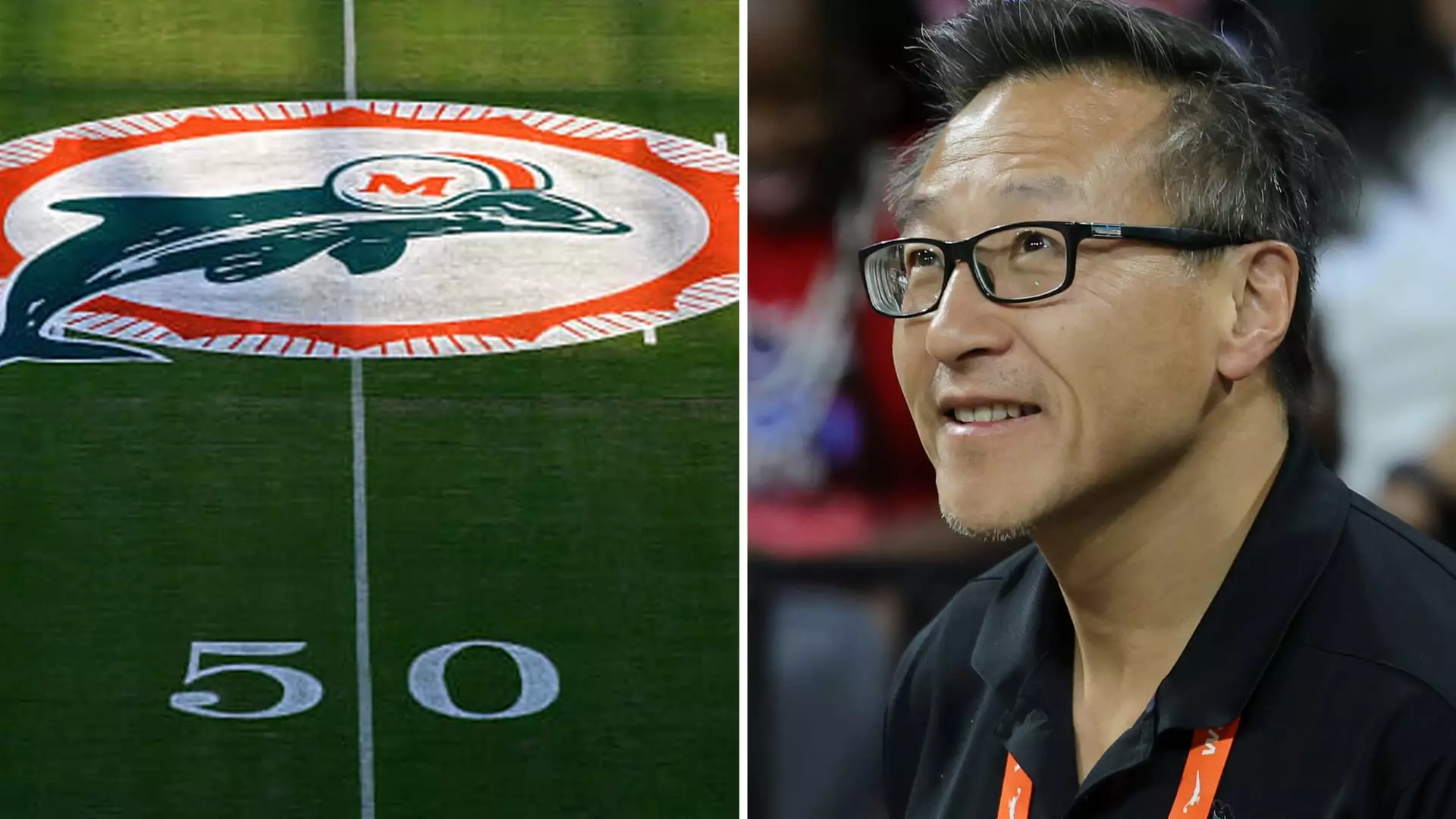In a notable shift within the National Football League (NFL), the Miami Dolphins are currently engaged in advanced negotiations to sell a minority stake in the team to Ares Management, a prominent private equity firm, alongside billionaire Joe Tsai. This news not only underscores the evolving financial landscape of professional sports but also reflects a broader trend wherein team owners are increasingly seeking to diversify their portfolios to maximize revenue streams. The proposed deal, encompassing various valuable assets like Hard Rock Stadium and exclusive operating rights to marquee events such as the Miami Grand Prix F1 race and the Miami Open, values the Dolphins and associated properties at an impressive $8.1 billion.
The valuation places the Dolphins as the eighth most valuable franchise in the NFL, with a standalone worth of approximately $7.1 billion — a figure that notably excludes Hard Rock Stadium. When assessing the allure of the asset bundle, it becomes apparent that the soccer and entertainment integration offers a significant stimulus for potential investors. Notably, a controlling interest valuation would have presumably exceeded the $10 billion mark, revealing the lucrative nature of the sports ownership game. The financial dynamics of NFL franchises have traditionally centered around team valuations; however, this move highlights the potential associated with the ancillary business operations, such as venue ownership, which can capitalize on diverse events.
The forthcoming deal represents the first significant entry of private equity into the NFL since the league implemented new financing rules in August of this year. This policy overhaul allows select private equity firms to invest up to a 10% stake in NFL franchises, marking an important moment for the league, long regarded as resistant to such investments. Ares Management, being one of four approved firms, is set to pioneer this novel territory. The NFL’s softened stance toward private equity is reflective of rising valuations and the increasing challenges associated with finding buyers in an evolving sports market.
The Influence of Key Figures
Stephen Ross, the Dolphins’ owner since 2009, exemplifies a dynamic and strategic owner in the sphere of sports. Purchasing the franchise for a mere $1.1 billion a decade ago, Ross’s plans for reinvestment from the anticipated sale are indicative of his business acumen, possibly channeling funds toward expansive real estate initiatives in South Florida, as well as enhancing his sports investments. This approach not only diversifies his portfolio but also strengthens the operational synergy between team ownership and venue administration. Ross stands out as one of the few owners who also holds operational control of the team’s home stadium, a practice that significantly boosts revenue through potential events beyond football.
Joe Tsai’s involvement in these negotiations is equally noteworthy, considering that he is also the chair of Alibaba Group and an established sports mogul. Tsai’s ownership scope includes the Brooklyn Nets and New York Liberty, as well as interests in premier lacrosse teams and Major League Soccer. His strategic footprint extends through high-value venues like the Barclays Center and serves as a clear indicator of the global sports empire he is systematically building. Given Tsai’s current discussions for an additional 3% stake in the Dolphins, it signals a continuing trend where sports ownership is becoming synonymous with significant financial investment and global brand cultivation.
While no formal agreement has been finalized, and timelines are still uncertain, the potential for a partnership between Ares Management, Joe Tsai, and the Miami Dolphins could pave the way for a transformative era within the franchise. As the Miami Dolphins explore this opportunity against the backdrop of evolving financial parameters and changing stakeholder dynamics, the sports community will undoubtedly be keenly observing the outcome. The implications of this deal—if executed—may herald a new age of private equity presence in the NFL, influencing future trends and redefining ownership structures within professional sports leagues.


Leave a Reply